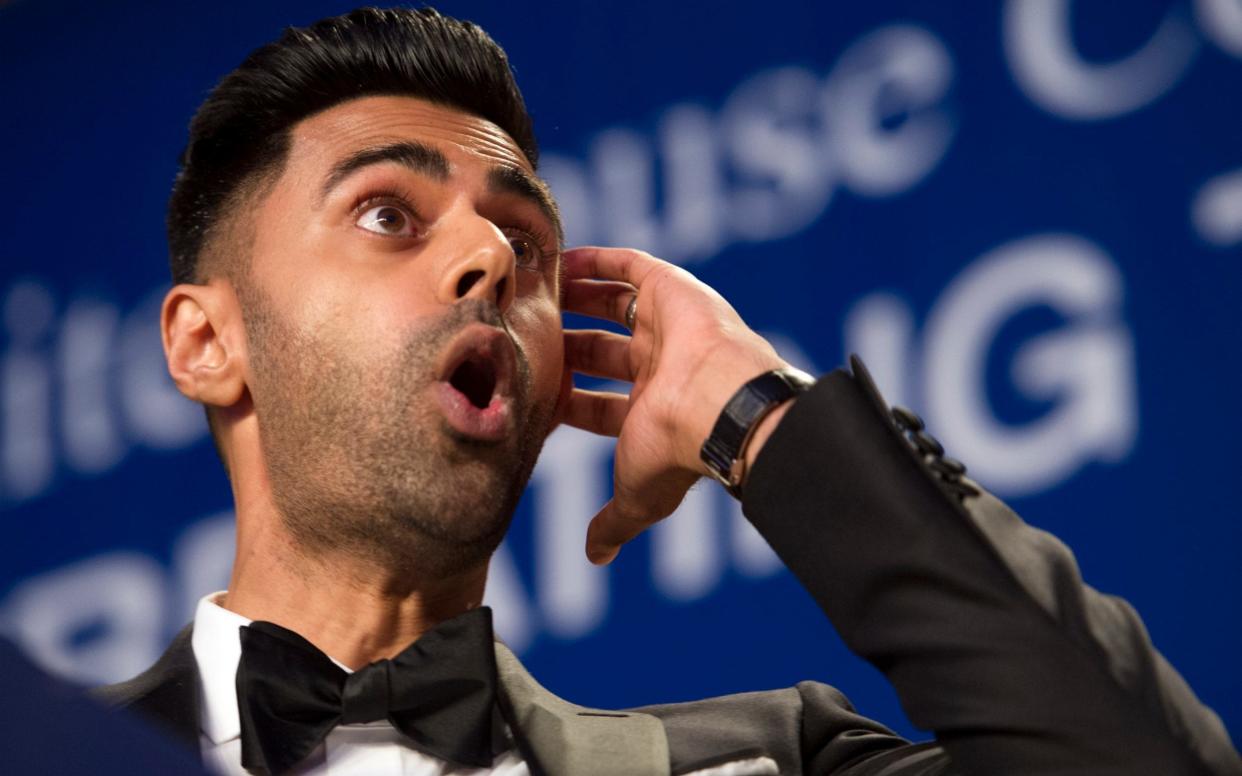Netflix accused of 'cowardice' for pulling comedy show following Saudi complaint

Netflix has been accused of "cowardice" for its decision to remove an episode of a satirical comedy show which was critical of Saudi Arabia, after having been asked to do so by Saudi officials.
Human rights activists said Netflix was at risk of "facilitating the Kingdom’s zero-tolerance policy on freedom of expression and assisting the authorities in denying people’s right to freely access information".
"Saudi Arabia’s censorship of Netflix using a cyber-crime law comes as no surprise and is further proof of a relentless crackdown on freedom of expression in the Kingdom," said Samah Hadid, Amnesty International’s Middle East campaigns director.
Chris Bryant MP, member of the foreign affairs committee, added that pulling the episode was "just naked cowardice on the part of Netflix".
In the episode of Patriot Act, which Netflix took down last week, US comedian Hasan Minhaj discussed the murder of journalist Jamal Khashoggi in the Saudi consulate in Istanbul, saying: "The Saudis were struggling to explain his disappearance: they said he left the consulate safely, then they used a body double to make it seem like he was alive.
“At one point they were saying he died in a fist fight, Jackie Chan-style. They went through so many explanations.”
Riyadh has charged 11 people with the murder, but has rejected any claims Crown Prince Mohammed bin Salman was involved.
Mr Minhaj was also critical of the crown prince in the satirical TV show, saying: "He has been getting away with autocratic s--t like this for years with almost no blowback from the international community.
"It blows my mind that it took the killing of a Washington Post journalist for everyone to go, 'Oh, I guess he's really not a reformer.'"
Netflix only took the episode down from its own platform, and it is still available on YouTube in Saudi Arabia.
The streaming provider said: "We strongly support artistic freedom worldwide and only removed this episode in Saudi Arabia after we had received a valid legal request — and to comply with local law."
However, some human rights organisations said it was "outrageous" that countries such as Saudi Arabia were able to use their influence to censor people in liberal democracies.
Willy Fautré, director of Brussels-based Human Rights Without Frontiers organisation, said: "The media should not bend their neck and bow down to acts of intimidation from undemocratic regimes but should be at the forefront of the fight for freedom of expression for all."
Human Rights Watch agreed that "every artist whose work appears on Netflix should be outraged that the company has agreed to censor a comedy show because the thin-skinned royals in Saudi complained about it".
.@hasanminhaj of @patriotact has been a strong, honest and (funny) voice challenging Saudi Arabia + Mohammed bin Salman in the wake of #khashoggi’s murder. He brought awareness about Yemen.
Quite outrageous that @netflix has pulled one of his episodes critical of Saudi Arabia.— Karen Attiah (@KarenAttiah) January 1, 2019
The decision to take down the episode was also criticised by former colleagues of Mr Khashoggi at The Washington Post.
Karen Attiah, the newspaper's global opinions editor who had recruited Mr Khashoggi, said Mr Minhaj had been a "strong, honest and (funny) voice challenging Saudi Arabia + Mohammed bin Salman in the wake of #khashoggi’s murder".
"He brought awareness about Yemen. Quite outrageous that @netflix has pulled one of his episodes critical of Saudi Arabia," she said on Twitter last night.
Celine Assaf Boustani, International lawyer at the Human Rights Foundation: "Saudi Arabia's request to take down the 'Patriot Act' episode is a blatant attempt to control public opinion in the country.
"If Netflix were truly committed to supporting artistic freedom, it would not compromise its values at the request of a regime that can't bear criticism or satire.
"Netflix's decision is based on business interests disguised as legal compliance to a broad and vague Anti-Cyber Crime Law, and contributes to a dangerous trend that has seen internet companies helping tyrants in exchange for access to a market."

